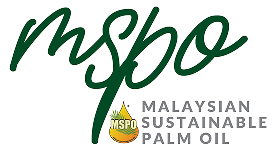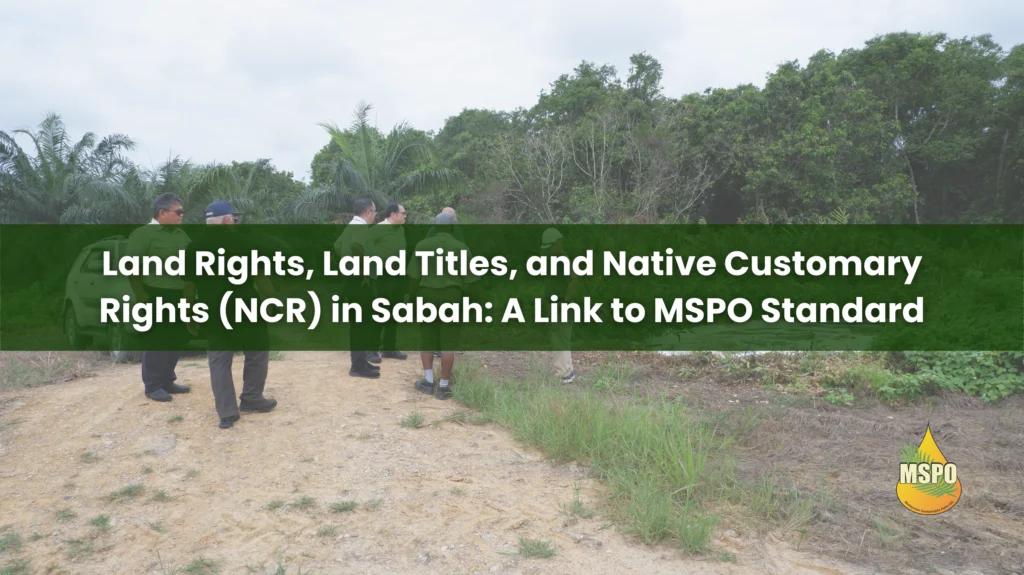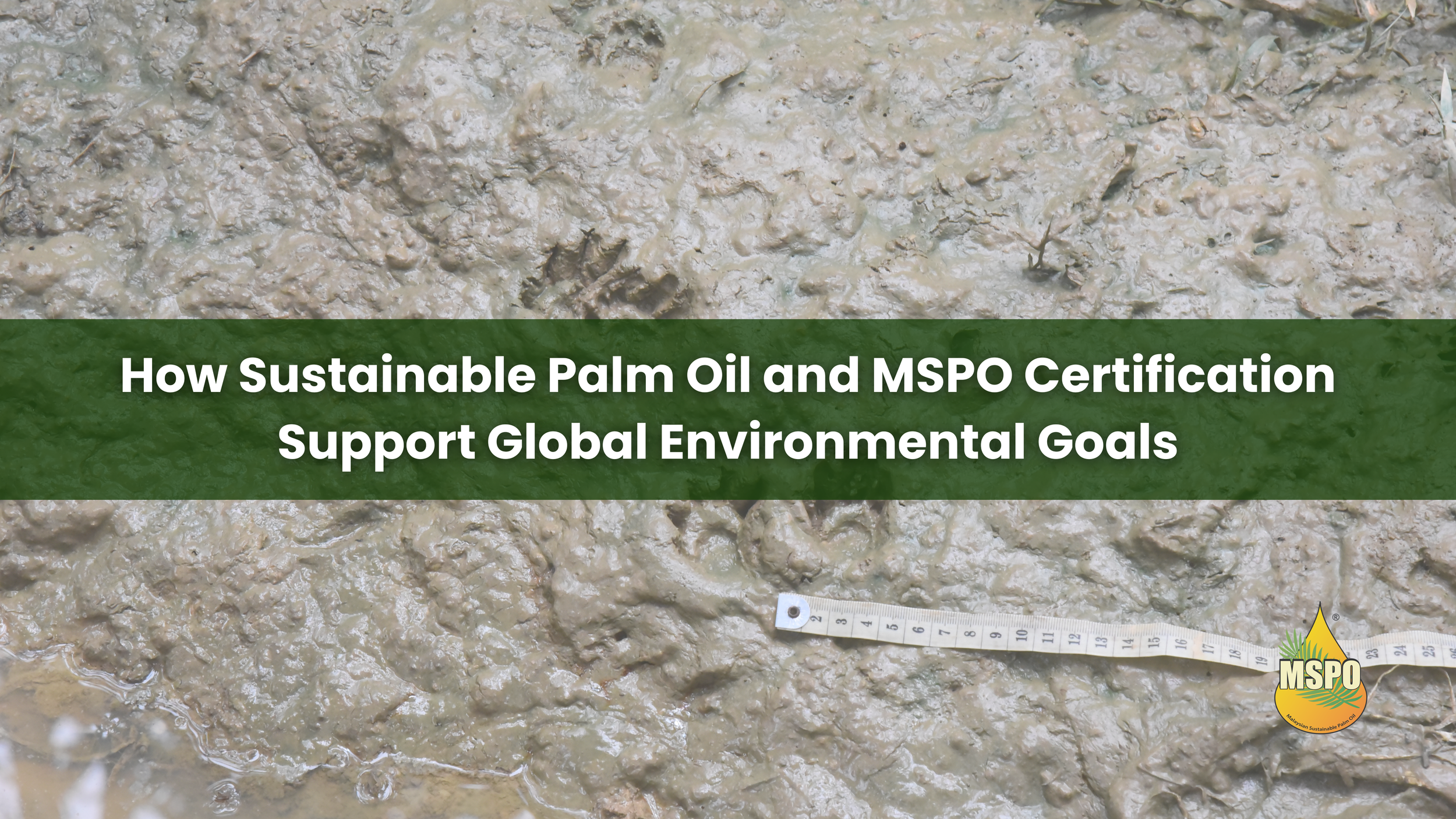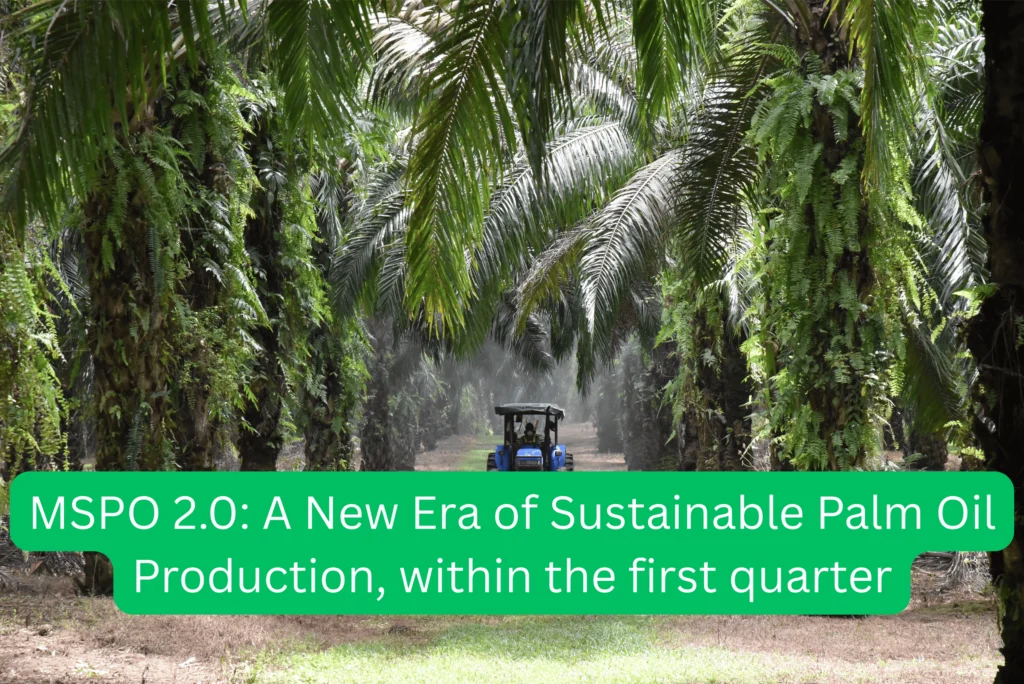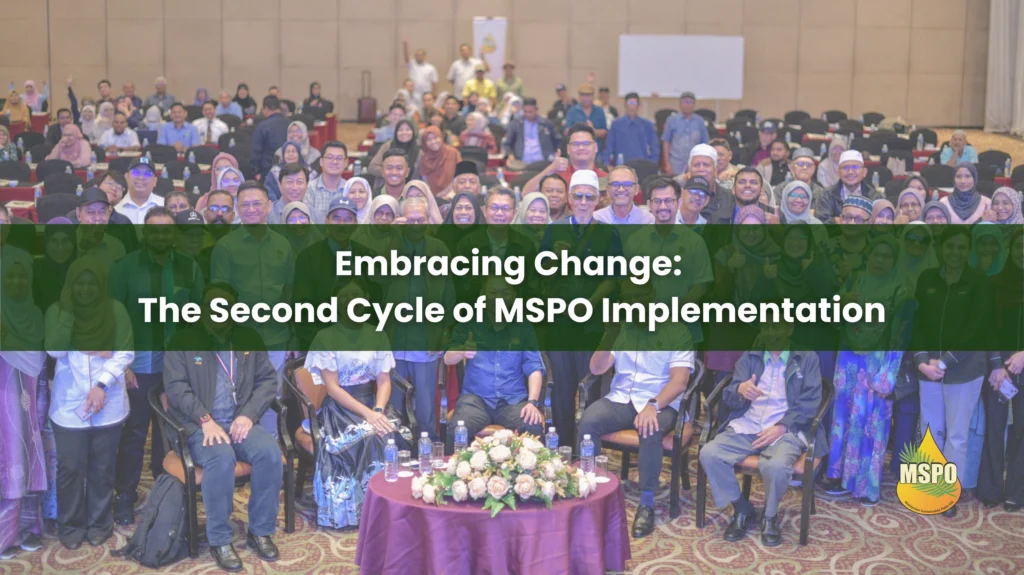Written by Yusman Haruna, MSPO
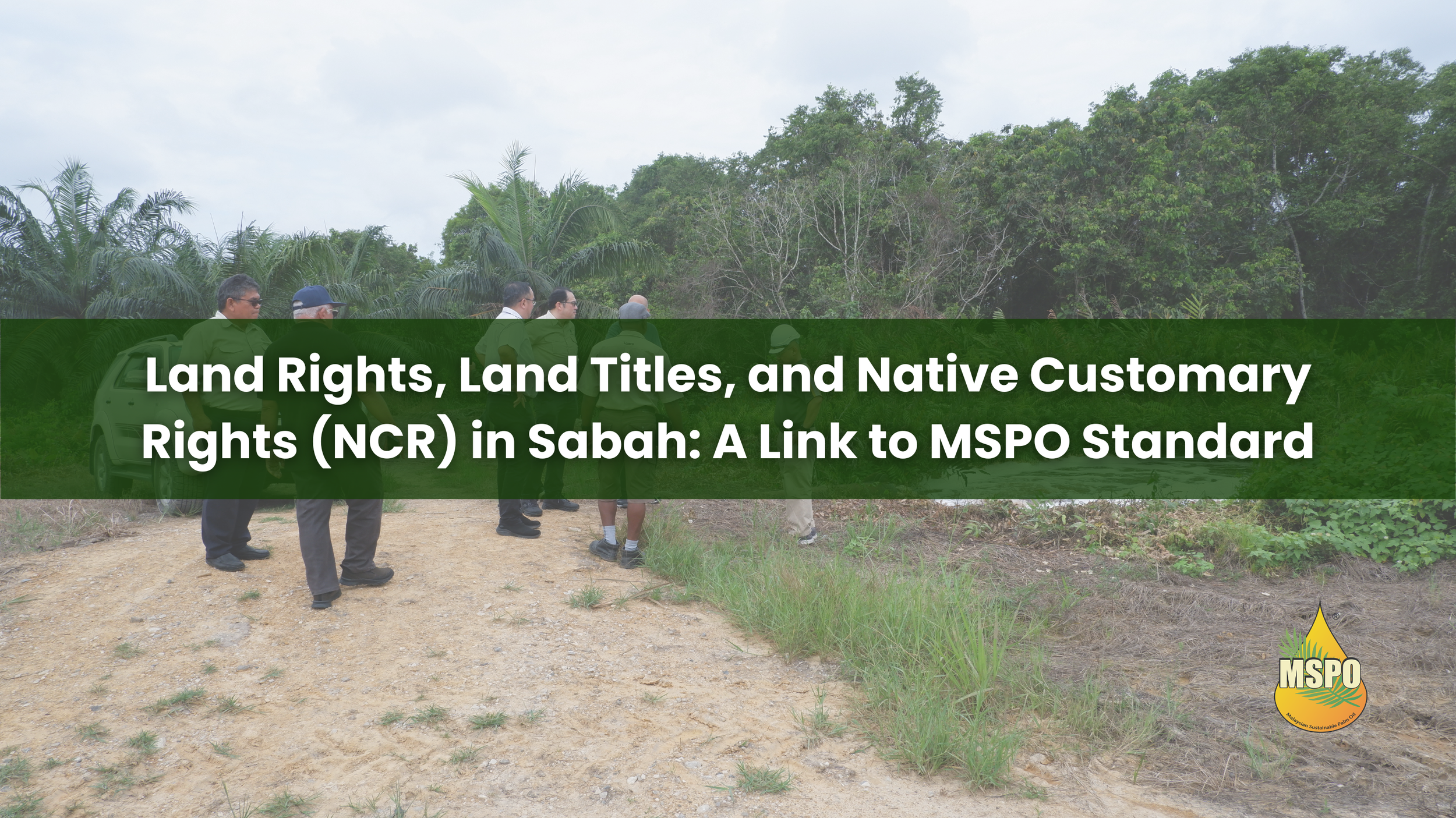
Land Rights and Management in Sabah: Key to Sustainable Palm Oil Production
Land rights and management are critical concerns in Sabah, where various stakeholders, including indigenous groups, government agencies, and commercial sector entities, frequently compete over land ownership, use, and conservation. The Sabah Land Ordinance (Cap. 68) governs the state’s land regulations, aiming to balance development demands, native rights preservation, and sustainable land use practices. Understanding these challenges is essential when considering their relation to the Malaysian Sustainable Palm Oil (MSPO) certification system, which strives to ensure sustainability in palm oil production.
Land Title and Ownership in Sabah: Relevance to MSPO
In Sabah, land ownership rests with the state government, which issues different types of land titles for various uses. These titles, such as Native Title (NT), Field Register (FR), and Communal Title (CT), define how land can be used and who holds the rights to it. MSPO Principle 2 focuses on transparency, mandating clear documentation of land ownership and usage rights. This principle encourages palm oil producers to ensure that land acquisition is carried out legally and in compliance with all relevant regulations. For example:
-
NT (Native Title) guarantees land rights to indigenous people and requires palm oil plantations to respect these rights when acquiring land. Palm oil companies must verify that their plantations do not encroach on NCR land without proper consent, aligning with the MSPO requirement for land ownership verification and adherence to legal frameworks.
-
CT (Communal Title) involves land for communal use, and companies must consult and gain the approval of the local community before any development project, including palm oil plantations, takes place on such lands.
Native Customary Rights (NCR): MSPO’s Commitment to Social Responsibility
Native Customary Rights (NCR) are crucial in Sabah, where indigenous communities hold ancestral land rights that may not always be documented through formal titles. Under the Sabah Land Ordinance, NCR is legally recognized for lands occupied and used according to customary practices, even in the absence of formal land titles.
MSPO Clause 4.3.3 emphasizes that customary rights should not be threatened or diminished, and any conflicts or land disputes related to these rights must be resolved through the Free, Prior, and Informed Consent (FPIC) process. This clause directly addresses the issue of NCR, ensuring that indigenous peoples’ land and resource rights are respected.
Challenges and Advancements: MSPO’s Role in Promoting Sustainable Land Management
One of the biggest challenges in Sabah is the overlap of NCR claims with land allocated for large-scale development projects, particularly palm oil plantations. This has led to legal disputes and social unrest. MSPO Principle 3 on compliance with legal and other requirements underscores the need for plantations to comply with the law and avoid encroachment on NCR lands.
Conclusion
The challenges related to land rights, land titles, and NCR in Sabah are closely tied to the sustainable development of palm oil production. The MSPO certification encourages companies to responsibly acquire land, operate transparently, and engage with indigenous communities. By following MSPO standards, the palm oil industry can address these issues and ensure that development supports both native rights and environmental sustainability in Sabah.
